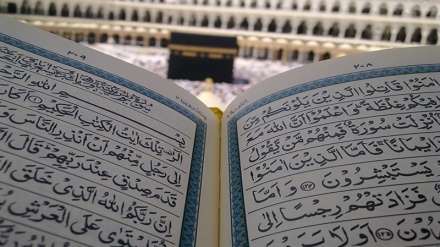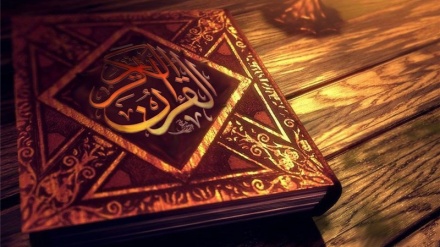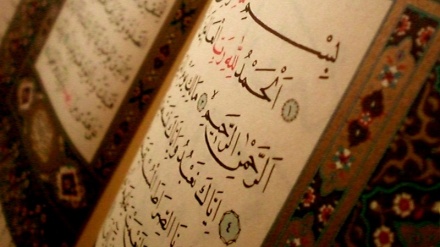Path towards Enlightenment (1040)
Welcome to our latest episode of “Path towards Enlightenment”, which is an endeavour to make you and us familiar with an easy and fluent explanation of God’s Final Scripture to all mankind, the holy Qur’an that was revealed to the Last and Greatest of all Messengers, Prophet Mohammad (blessings of God upon him and his progeny).
Today we will complete explanation of “Surah Nooh” which has 28 Ayahs, of which we have already expounded the first twenty Ayahs in our last two weekly episodes. It was revealed in Mecca and opens with an account of Prophet Noah, hence its title “Nooh”. It sheds light on the relentless efforts of this ancient Prophet to guide the obstinate disbelievers to the path of monotheism and virtue by warning them of Divine Punishment before the massive flood that finally drowned them for their sins and idol-worship. The disbelievers of his time had transgressed all moral bounds. If they had availed of the centuries’ long respite given to them by the All-Merciful Creator, and repented and reformed themselves, they would have been spared of the terrible punishment. The message of this Surah is that pagan superstitions and cults do not add to human knowledge or well-being. They only increase error, evil, corruption and injustice.
Noah is the first of the Five Great Prophets – the other four being Abraham, Moses, Jesus and the Last and Greatest of them all, Prophet Mohammad (blessings of God upon him and his progeny.
He lived the longest timespan and is the only Prophet whose mission of 950 years is mentioned in the Holy Qur’an. Ordered by God Almighty, he built the huge Ark to rescue a pair of every kind of animals and the small number of people who were on the right path, and thus he succeeded in the deliverance of the virtuous among mankind and other species of living things from the great flood.
Glimpses of Noah’s mission are also found in the Surahs A’raaf, Younus, Houd, Anbiya, Momenoun, Shu’ara, and Ankabout.
We continue from where we left you last Friday and here are Ayahs 21, 22, and 23:
“Noah said, ‘My Lord! They (the disbelievers) have disobeyed me, and followed someone whose wealth and children only add to this loss;
“And they have devised an outrageous plot.
“They say (among themselves), ‘Do not abandon your gods. Do not abandon Wadd, nor Suwa, nor Yaghuth, Ya’uq and Nasr.”
Last week and the week before we had referred to the strenuous efforts of Prophet Noah for long centuries to awaken the conscience of his nation for obedience to none except the Almighty Creator by enumerating the bounties of the All-Merciful Lord all around us, and to desist from sins and idol-worship.
The Ayahs that we recited to you now indicate Noah’s patience running thin at the intransigence of his nation of whom only a few remained on the right path, leaving the extremely patient Prophet no other choice but to complain to the Almighty Creator of the total deviation and devilish plots of those continuously sinking deeply in sins by following the wealthy idolaters who considered stone and wooden objects crafted by themselves as gods. The five principal deities worshipped by the polytheists in those days were named Wadd, Suwa, Yaghuth, Yauq and Nasr.
A glance at the history of mankind makes us understand how the ignorant masses in every era and place were manipulated by the ringleaders of oppression and polytheism whose power was based on amassing unlawful possessions and fathering unworthy offspring, while ridiculing the Prophets of God and preventing people from heeding the voice of reason and piety.
These Ayahs teach us that:
- Many people, instead of acknowledging the manifest truth, blindly pursue carnal pleasures and unlawful earnings on the assumption of attaining prosperity.
- History bears witness how the Prophets were mocked and persecuted by the wealthy and sinful tyrants who prevented most people from proper cognizance of the One and Only Creator by imposing idol-worship upon them.
- A deviated and sinful majority cannot be a criterion for leadership and governance – on the pretext of democracy and representative rule.
Now let us listen to Ayahs 24 and 25 of the same Surah:
“And they have surely led many astray; ‘[O Allah!] Do not increase the wrongdoers in anything but error’.
“They (the unbelievers) were drowned (in the great flood) because of their iniquities, then made to enter the Fire (in afterlife), and they did not find for themselves any helpers besides Allah.”
Ayah 24 is Noah’s reference to the sinister role of the wealthy tyrants in leading people astray, and consequently his invoking of Divine curse that the lot of the intransigent wrongdoers ought to be nothing but plunging in more error for refusal to avail of the respite of life given by the Almighty Creator for reform and repentance.
Ayah 25 refers to the terrible punishment of the obdurate sinners after centuries of respite through a great flood that drowned them all and trapped them in the eternal fire, making them realize after death the dire consequence of their unpardonable crime in disobeying the Almighty Creator Who alone could have saved them in case of repentance. The fate of a person after death is either a garden of Paradise for the righteous believers or a pit of Hell for the disbelievers and obdurate sinners.
From these Ayahs we learn that:
- The notables, such as political, social, academic, cultural, religious figures, and the so-called celebrities of cinema and sports, should be extra cautious of their words and deeds which can adversely affect a great number of people, especially the youth.
- Evil is not limited to the misuse of wealth, power, and the physical body, but also includes cultural deviation and false beliefs in the name of religion which are more dangerous and destructive.
- Divine punishment is the lot of the disbelievers on Resurrection and the Day of Judgement, while some sinners are afflicted in life itself as a form of chastisement to them and as an admonition to others.
- Wealth, power, influential friends, or a large number of followers are of no avail in afterlife and cannot save anyone from Divine punishment.
In conclusion of this week’s Path towards Enlightenment which also marks the completion of Surah Nooh, we invite you to listen to Ayahs 26, 27, and 28:
“And Noah said: My Lord! Do not leave on the earth any dweller from among the faithless.
“Indeed if you leave them, they will lead astray Your servants and will not beget except vicious ingrates.
“O my Lord! Forgive me and my parents, and whoever enters my house in faith, and (also) the believing men and believing women, and do not increase the wrongdoers in anything except ruin!”
The huge flood that engulfed the Earth was a Divine punishment after centuries of respite for the intransigent disbelieving sinners, concerning whom Noah’s proverbial patience had turned into despair leaving him with no other choice to save the few believers and humanitarian values except by invoking the curse of God that no disbeliever of his time should be spared because such wicked persons lead others astray and produce a brood of ungrateful sinners themselves.
A point to note is that the curse of the Prophets is not the result of wrath, hatred, and vengeance, but Divine inspiration to save humanity from the tyranny of the obdurate oppressors who will never be guided and will never desist from genocide and misleading of others.
Ayah 28 is indicative of the humbleness of Prophet Noah whose very name or more properly epithet, means lamentation or “nouha” in the Semitic language, at the miserable fate the disbelievers and sinners were bringing upon themselves by refusing to heed his words of reason. Thus, he seeks forgiveness or Divine grace for himself, for his parents as a token of gratitude towards them for his upright upbringing, for the faithful frequenting his house and boarding the Ark for refuge from the flood, and all men and women believing in his mission. He then repeats his invocation to God for the ruin of the wicked.
According to reliable narrations, the sprawling grand mosque of the city of Kufa in Iraq was the home of Prophet Noah and the place where he built the huge Ark.
These Ayahs teach us the following points:
- A person or a society immersed in error, evil, corruption, and oppression, is prone to destruction.
- Parents play a pivotal role in the upbringing of children, whether through guidance or misguidance; and the next generation is the outcome of the present one.
- We should be humble in the presence of God the Omnipresent by praying for forgiveness of our shortcomings, that of our parents, and the rest of the believers; while disavowing the disbelievers.
On that note we come to the end of the explanation of Surah Noah, and next week we will present you Surah Jinn. Till them, God bless you and goodbye.
RM/AS/SS


